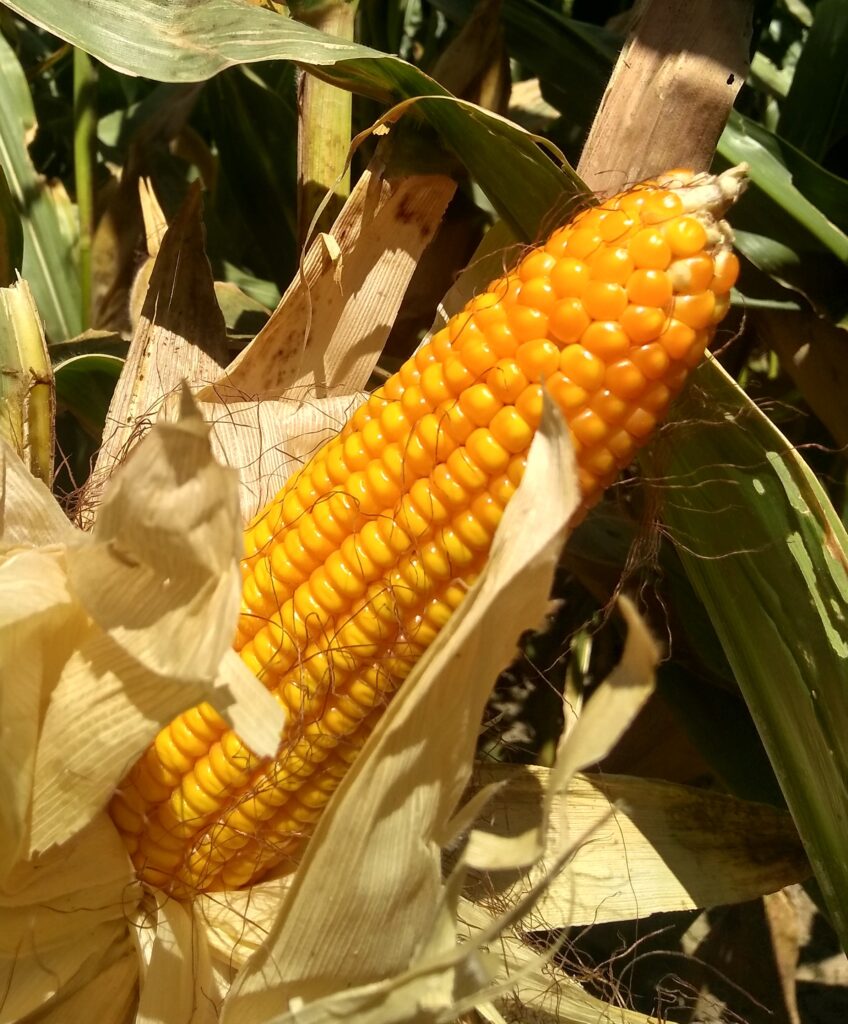A joint project of CropLife Asia & the Southeast Asian Regional Center for Graduate Study and Research in Agriculture (SEARCA)

Well into his senior years, Vietnamese farmer, Hoang Trong Ngai, 69, reflects on how adopting genetically modified (GM) maize has benefited not just him but his community as well.
Ngai first heard about GM maize in 2015, when he attended a farmer’s conference organized by the provincial government. Back then, Vietnamese farmers were still hesitant to adopt GM crops since they knew little about it.
However, among the technologies presented during the event, it was GM maize that caught Ngai’s attention. So much so that he quickly began testing several varieties and finally settled on a GM hybrid which is one of the widely adaptable varieties in Vietnam. According to Ngai, the crop produced higher yield and had better resistance to pests and diseases compared with the conventional variety. It was also suitable for local soil conditions.
ECONOMIC GAINS
Starting with merely a hectare of farmland in 2015, Ngai now plants GM maize on nearly three hectares. The average yield of the GM variety is 15% higher (55 quintals/ha) than that of traditional varieties (47.9 quintals/ha), which makes him and his family one of the highest corn producers in the Vinh Phuc province. “With GM maize, we can harvest as much as 60 quintals/ha when the weather is good. It also requires minimum care and reduced pesticide use,” Ngai shares.
The GM maize also generates higher profits. With 2.6 ha of farm area and two production seasons per year, Ngai earns 41% more (3,914 USD/crop) than the average annual income of farmers planting conventional maize (2,759.5 USD/crop).

While farmers can apply the same planting technique used for conventional varieties, GM maize comes with added savings since it does not require any pesticides. It also reduces the cost of labor for land preparation. Ngai recalls, “we had to employ 25 laborers to till the land but now, it only takes three family members to prepare the land for cultivation.” “With these savings, I can say that the total production cost of GM maize is significantly lower compared to traditional varieties,” he adds.
IMPROVED FARMING METHODS
Ngai also saw huge improvements in his farming practices. “We used to till the land manually, which led to low sowing density. Only two crops per season (corn crop and cash crop) were planted on the family farmland. But since the GM maize variety has better tolerance and shorter growing period (115 days), I was able to re-arrange the planting schedule to accommodate three crops in the farm.” More importantly, Ngai does not use insecticides anymore. This, he notes, is one of the biggest benefits of planting GM maize.

“…since the GM maize variety has better tolerance and shorter growing period, I was able to re-arrange the planting schedule to accommodate three crops in the farm.” – Hoang Trong Ngai
PERSONAL GAINS
With his increased income, Ngai was able to support the needs of his family and actively take part in community events. “I bought motorbikes and repaired our house. I was also able to send my children to college and buy them computers and phones that they need for online schooling,” he happily shares. Since they spend less time tending to their field now, their family has also been able to actively participate in other community activities.
Inspired by Ngai’s success, other farmers wanted to plant GM crops, too. To consolidate their efforts, Ngai established a farmer group in his community. The farmers have planted GM maize on 120 hectares in their district to date. “Since introducing GM maize to the community, the farmers have been working more closely together. We regularly exchange information and experiences with farmers within and outside the group,” he continues. The farmer group has also allowed members to share expenses for land preparation and harvesting.
HURDLES
Ngai admits that the progress of GM crops in Vietnam still face some challenges. Although “GM maize is still mainly consumed within the province and the local corn industry lacks linkages with animal feed processing enterprises to create a large raw material production area,” he explains.
The Vietnamese government has also officially banned the use of the herbicide Glyphosate in 2021, which is seen as an inconvenience for GM maize farmers. He adds, “The GM maize variety we are planting is insect-resistant, but we also used Glyphosate to control the weeds. Because of the ban, farmers must manually remove the weeds.”
Another challenge is land availability. Ngai shares that since more households in the Vinh Phuc province have converted their lands for growing other crops, flowers, and fruit trees, it has been difficult to expand the area for GM maize.

NGAI’S MESSAGE
With all its benefits, Ngai considers GM maize a personal success story. “Planting GM maize is efficient and low-cost. I can attest that it’s a safe investment for farmers.” He also advised fellow farmers to consult experts and test varieties to ensure that it’s suitable for local conditions.
Ngai further highlights the safety of GM crops. “The public should not be afraid of GM products. Other countries using it have proven its safety. My family and community have been cultivating GM maize for a long time without experiencing any health problems. This is even better than the traditional varieties since we don’t use insecticides,” he states.
